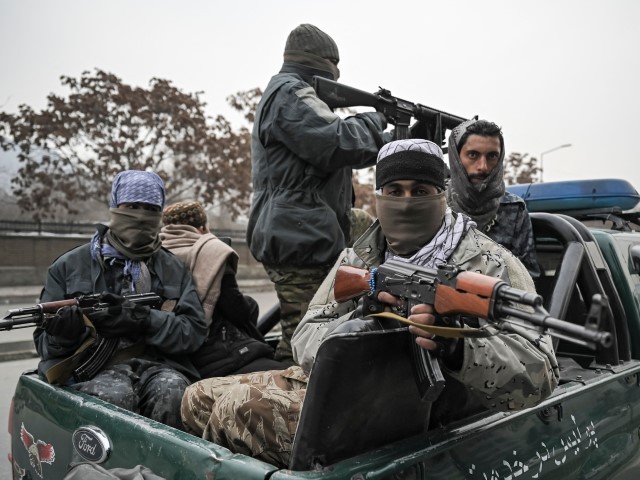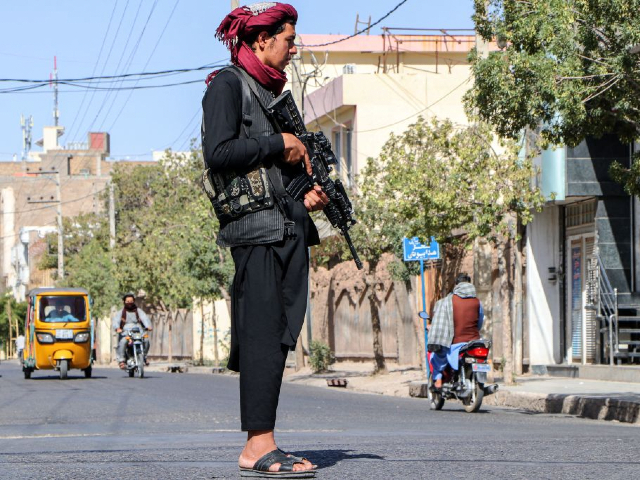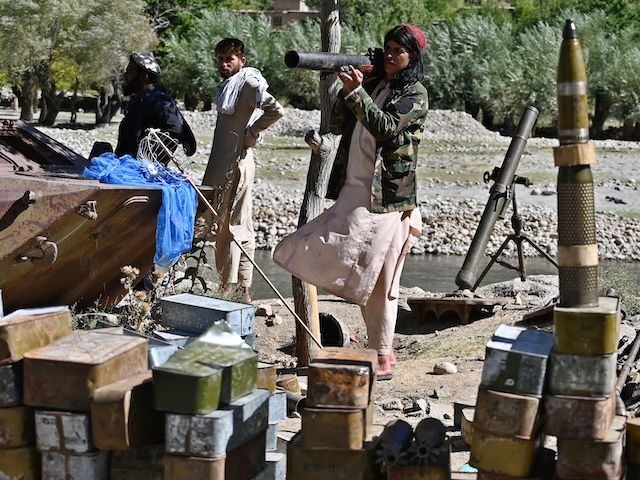Tom West, the U.S. special representative for Afghanistan, said on Tuesday that the Taliban rulers of Afghanistan have “significantly degraded” their rivals in the Islamic State, including the liquidation of several top ISIS leaders since the Taliban took over in 2021.
“They have a very aggressive violent offensive ongoing that has significantly degraded ISKP capability. I think it’s notable that since early 2023, Taliban raids in Afghanistan have removed at least eight key ISKP leaders, some responsible for external plotting,” West told a seminar at the Stimson Center in Washington.
ISKP stands for “Islamic State Khorasan Province,” the name commonly given to the ISIS franchise in Central and South Asia. The Islamic State formally announced the incorporation of ISKP in 2015, naming leadership with experience at fighting in the Pakistan-Afghanistan border region.
The Taliban made an effort to incorporate ISKP into their insurgency against the U.S.-backed government of Afghanistan, but when that failed, the two terrorist groups became bitter rivals, fighting numerous bloody squabbles over turf. When the Taliban took control of Afghanistan following President Joe Biden’s disastrous withdrawal in 2021, the rivalry became open warfare between Taliban forces and roughly 2,000 ISKP fighters.

Taliban fighters patrol along a street during a demonstration by people to condemn the recent protest by the Afghan women’s rights activists, in Kabul on January 21, 2022. (Getty)
West credited the Taliban crackdown on its Islamic State rivals for a “steady decrease” in terrorist attacks against Afghan civilians. ISKP tried to destabilize the Taliban regime in Kabul with vicious terror attacks, including a series of strikes against Chinese interests in Afghanistan. China is one of the few major world governments that has been eager to form economic and political partnerships with the Taliban regime.
In December 2022, the Islamic State claimed responsibility for a gun and bomb attack on a hotel in Kabul that was popular with visiting Chinese businessmen. The Chinese government publicly scolded the Taliban for not providing enough security for its representatives in Afghanistan.
“There were horrific attacks largely against the Hazara population, but we have not seen a return to those sorts of attacks since then,” West said, referring to a Shiite Muslim minority in Afghanistan that has been used, and abused, by many militant factions over the years, including the Taliban and ISIS.
The Taliban has perpetrated its own share of “horrific attacks” against the Hazara. In September 2022, for example, Taliban fighters unlawfully detained and executed six Hazara, including a woman and a 12-year-old girl, during a night raid in the Ghor province. At least one of the victims was clearly tortured before the execution was carried out.
West is not the first Biden administration official to search for some fitful gleam of an anti-ISIS silver lining in the dark cloud of the Taliban takeover. In April, White House National Security Council spokesman John Kirby praised the Taliban’s elimination of the ISIS mastermind behind the 2021 Kabul airport bombing as a positive achievement that “validates the president’s decision to leave Afghanistan altogether.”
“Now, look, the Taliban killed this individual. I think it’s a good thing that he’s gone. I think it’s a great thing that he’s no longer walking the earth and no longer can plan attacks and conduct attacks against anyone, let alone American interests,” Kirby said.
“I think it’s also important to remember, we killed al-Zawahiri while he was sitting on a balcony in Kabul, Afghanistan using over-the-horizon capabilities. And we’ve taken out other ISIS leaders in Somalia and in Syria, again, using over the horizon,” he added.

A Taliban fighter stands guard at a checkpoint in Herat on August 15, 2022. (MOHSIN KARIMI/AFP via Getty Images)
Ayman al-Zawahiri was the al-Qaeda leader hiding in Kabul who was killed by a U.S. drone strike in August 2022. The Taliban regime denounced the U.S. for launching the attack and denied it was sheltering Zawahiri.
West said in November 2021 that the Biden administration envisioned a “roadmap” for normalizing relations with the Taliban that would include various human-rights and security goals for the regime in Kabul to meet. The Taliban has conspicuously failed to meet all of them, except for fighting ISIS, which is clearly something the regime wanted to do anyway.
At the Stimson Center on Tuesday, West argued that the Taliban has degraded ISKP enough to bump it down to second place on the list of regional security threats. The top menace is now Tehrik-i-Taliban Pakistan (TTP), the “Pakistani Taliban,” a sworn ally of the Afghan Taliban.
TTP has greatly increased the tempo of its attacks on Pakistan since the Taliban takeover, using Afghanistan as a safe haven. Last week, Pakistan’s interim prime minister Anwaar-ul-Haq Kakar said TTP forces are attacking Pakistani outposts with sophisticated American weapons abandoned by Joe Biden during his chaotic withdrawal. Pakistani officials have strongly criticized the Biden administration for unleashing a massive security crisis in the region.
West conceded that TTP became well-known allies of the Afghan Taliban during the long insurrection against the U.S.-supported government – “they were financial supporters, logistical supporters, and operational allies as well” – but refused to address Pakistan’s allegations that the Kabul regime is supporting TTP attacks across the border.
“That’s a tough one and probably gets beyond what I am able to talk about publicly. It’s no secret that this is the issue that dominates Pakistan’s engagement with the Taliban at the moment,” he said.

COMMENTS
Please let us know if you're having issues with commenting.